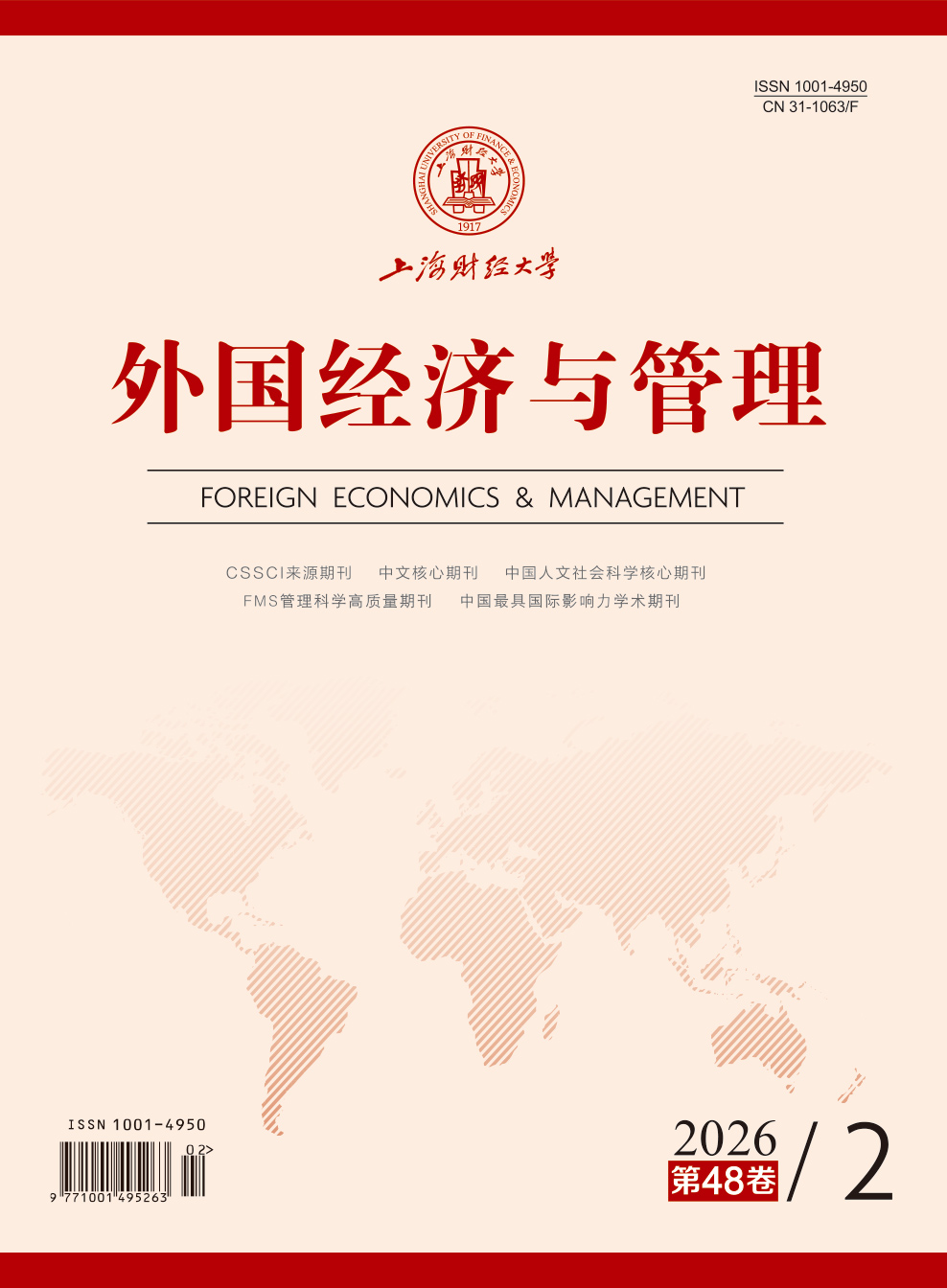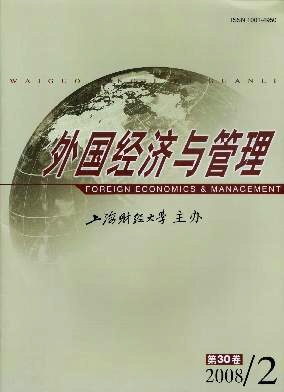消费者自我建构研究述评
外国经济与管理 2008 年 第 30 卷第 02 期, 页码:42 - 50
摘要
参考文献
摘要
随着大量的心理学核心概念被引入消费者行为研究领域,心理学派已成为消费者行为研究的主流学派。自我建构这一心理学概念自20世纪90年代末被引入消费者行为研究领域以来,已经成为国际上消费者行为研究领域的一个热点。本文对自我建构的概念、类型、测量方法以及有关消费者自我建构的实证研究进行了述评,并指出了未来可能的研究方向。
[1]Markus,Hazel,and Shinobu Kitayama.Culture and the self:I mplications for cognition,emotion,and motivation[J].PsychologicalReview,1991,98(Apr.):24-53.
[2]Lu,Luo,and Robin Gil mour.Developing a new measure of independent andinterdependent views of the self[J].Journal of Researchin Personality,2007,22(Nov.):249-257.
[3]Triandis,H C.Individualismand collectivism[M].Boulder,CO:Westview,1995.
[4]Singelis,T M.The measurement of independent andinterdependent self-construals[J].Personality and Social Psychology Bulletin,1994,20(May):580-591.
[5]Escalas,J E,and James R Bett man.Self-construal,reference groups,and brand meaning[J].Journal of Consumer Research,2005,32(Dec.):378-389.
[6]Agrawal,Nidhi,and Durairaj Maheswaran.The effects of self-construal and commit ment on persuasion[J].Journal of Consumer Re-search,2005,31(Mar.):841-849.
[7]Swaminathan,Vanitha,et al.“My”brand or“our”brand:The effects of brand relationship di mensions and self-construal on brandevaluations[J].Journal of Consumer Research,2007,34(Aug.):248-259.
[8]Jain,S P,et al.Theinfluence of chronic and situational self-construal on categorization[J].Journal of Consumer Research,2007,34(Jun.):66-76.
[9]Maheswaran,Durairaj,and Sharon Shavitt.Issues and newdirections in global consumer psychology[J].Journal of Consumer Psy-chology,2000,9(2):59-66.
[10]Hui,H C.Measurement of individualism-collectivism[J].Journal of Researchin Personality,1988,22:17-36.
[11]Triandis,H C,et al.The measurement of etic aspects of individualismand collectivismacross cultures[J].Australian Journal ofPsychology,1986,38:257-267.
[12]Levine,T R,et al.Self-construal scales lack validity[J].Human Communication Research,2003,29(Apr.):210-252.
[13]Kuhn,Manford H,and Thomas S McPartland.An empirical investigation of self-attitudes[J].American Sociological Review,1954,19(Feb.):68-76.
[14]Li,Han Z,et al.Rethinking culture and self-construal:China as a middleland[J].Journal of Social Psychology,2006,146(Oct.):591-610.
[15]Polyorat,Kawpong,and Dana L Alden.Self-construal and need-for-cognition effects on brand attitudes and purchase intentions inresponse to comparative advertisingin Thailand and the United States[J].Journal of Advertising,2005,34(Spr.):37-48.
[16]Tsai,Shu-Pei.Message framing strategy for brand communication[J].Journal of Advertising Research,2007,10(Sep.):364-377.
[17]Lee,Angela Y,et al.The pleasures and pains of distinct self-construals:The role of interdependence in regulatory focus[J].Jour-nal of Personality&Social Psychology,2000,78(Jun.):1 122-1 134.
[18]Aaker,Jennifer L.“I”seek pleasures and“we”avoid pains:The role of self-regulatory goalsininformation[J].Journal of ConsumerResearch,2001,28(Jun.):33-49.
[19]Mandel,Naomi.Shifting selves and decision making:The effects of self-construal pri ming on consumer risk-taking[J].Journal ofConsumer Research,2003,30(Jun.):30-40.
[2]Lu,Luo,and Robin Gil mour.Developing a new measure of independent andinterdependent views of the self[J].Journal of Researchin Personality,2007,22(Nov.):249-257.
[3]Triandis,H C.Individualismand collectivism[M].Boulder,CO:Westview,1995.
[4]Singelis,T M.The measurement of independent andinterdependent self-construals[J].Personality and Social Psychology Bulletin,1994,20(May):580-591.
[5]Escalas,J E,and James R Bett man.Self-construal,reference groups,and brand meaning[J].Journal of Consumer Research,2005,32(Dec.):378-389.
[6]Agrawal,Nidhi,and Durairaj Maheswaran.The effects of self-construal and commit ment on persuasion[J].Journal of Consumer Re-search,2005,31(Mar.):841-849.
[7]Swaminathan,Vanitha,et al.“My”brand or“our”brand:The effects of brand relationship di mensions and self-construal on brandevaluations[J].Journal of Consumer Research,2007,34(Aug.):248-259.
[8]Jain,S P,et al.Theinfluence of chronic and situational self-construal on categorization[J].Journal of Consumer Research,2007,34(Jun.):66-76.
[9]Maheswaran,Durairaj,and Sharon Shavitt.Issues and newdirections in global consumer psychology[J].Journal of Consumer Psy-chology,2000,9(2):59-66.
[10]Hui,H C.Measurement of individualism-collectivism[J].Journal of Researchin Personality,1988,22:17-36.
[11]Triandis,H C,et al.The measurement of etic aspects of individualismand collectivismacross cultures[J].Australian Journal ofPsychology,1986,38:257-267.
[12]Levine,T R,et al.Self-construal scales lack validity[J].Human Communication Research,2003,29(Apr.):210-252.
[13]Kuhn,Manford H,and Thomas S McPartland.An empirical investigation of self-attitudes[J].American Sociological Review,1954,19(Feb.):68-76.
[14]Li,Han Z,et al.Rethinking culture and self-construal:China as a middleland[J].Journal of Social Psychology,2006,146(Oct.):591-610.
[15]Polyorat,Kawpong,and Dana L Alden.Self-construal and need-for-cognition effects on brand attitudes and purchase intentions inresponse to comparative advertisingin Thailand and the United States[J].Journal of Advertising,2005,34(Spr.):37-48.
[16]Tsai,Shu-Pei.Message framing strategy for brand communication[J].Journal of Advertising Research,2007,10(Sep.):364-377.
[17]Lee,Angela Y,et al.The pleasures and pains of distinct self-construals:The role of interdependence in regulatory focus[J].Jour-nal of Personality&Social Psychology,2000,78(Jun.):1 122-1 134.
[18]Aaker,Jennifer L.“I”seek pleasures and“we”avoid pains:The role of self-regulatory goalsininformation[J].Journal of ConsumerResearch,2001,28(Jun.):33-49.
[19]Mandel,Naomi.Shifting selves and decision making:The effects of self-construal pri ming on consumer risk-taking[J].Journal ofConsumer Research,2003,30(Jun.):30-40.
引用本文
朱丽叶, 卢泰宏. 消费者自我建构研究述评[J]. 外国经济与管理, 2008, 30(2): 42–50.
导出参考文献,格式为:
下一篇:品牌依恋理论研究探析





 7871
7871  380
380

